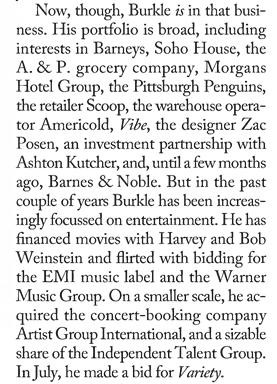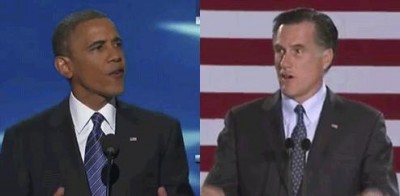New York City, September 30, 2012

★★ Alluring but not to be trusted. A blue morning with tiny specks of cloud drew unwary pedestrians out in shirtsleeves, into a darkening and gusty afternoon. When the gusts began to carry spitting raindrops with them, the betrayal was too much for the five-year-old to bear. The force of reason — how could one get out of it without walking on through it? — was of no use, but a Nestle Crunch from a newsstand was. At errands’ end, things were clear again. Giant soap bubbles whipped by the back windows of the lobby, from a bubble gun wielded by a toddler, bundled up in a white furry jacket with a pink satin hood. After sundown, it was time for mooncakes, but before there could be mooncakes it seemed worth a try to see the harvest moon. The proper part of the eastern sky was blocked by towers; the cross streets and the angle of Broadway failed to yield a suitable gap. So eastward, toward the Park, under a thick, shadowy canopy of leaves. Unzipped jackets were fine. Intermittently, the gold of street lamps and of a high window gleamed deceptively through the foliage, glimpses of false beacons. Then the Park itself, more trees and a promontory standing up black and impenetrable. The path skirted the darkness, curving around, till — there! Almost. Framed in the pathway along the Sheep Meadow was a glowing patch of rumpled clouds, the last lingering clouds of the day. Slowly the disc resolved itself, round and proper, not orange but a pure shining bone-white.
Ron Burkle Owns a Little Bit of Everything

I was all “oh, groan, why is there a Ron Burkle profile in the New Yorker, what year is it?” But I was incorrect! The year is now! Between his buddying around with Novak Djokovic and Leo DiCaprio and Harvey Weinstein most of all, and his going full-time into Hollywood producer-bundler making-money-out-of-nothing mode, the Burkle is more timely than ever. Also worth it: the full, brutal tale of his divorce. (You can feel Burkle’s rage on reading this profile, by the way. Boy oh boy, I bet he regrets participating.) He conducted a major sale the day after she signed the prenup, thereby limiting their community property to a small fraction of his wealth. His poor ex-wife only walked with $40 million! Can you imagine trying to survive on that for the rest of your life. I certainly can’t?
The Five Stages Of Grief Following The Publication Of One's First Book
by Misha Angrist

1. DENIAL
• “Sorry, Mom, I can’t talk long. Terry Gross is likely to call at any time and I imagine will want instructions on how to pronounce my name.”
• “Everyone knows that Amazon rankings are a total joke. I mean, I could give a shit. But you and everyone else in our extended family did buy seven copies each at 5:22 a.m. EST just like I told you, right?”
• “And those Nielsen BookScan sales numbers are clearly off by one decimal place. Maybe two.”
• “I need to be at Barnes and Noble right when it opens. What? No reason.”
• “Book reviews, on the other hand… EXTREMELY IMPORTANT.”
• “No, I’m still weighing ‘The Daily Show’ versus ‘Colbert.’ Say hi to Dad.”
• “If they want to low-ball me on the film rights, that’s fine, but in that case I will need a piece of the back end and final say on casting. I feel strongly that in the interests of verisimilitude, I should be played by a hairy Jew from Pittsburgh. But of course he will have to be filmed in a way that makes him look a foot shorter.”
2. ANGER
• “There are four people at my signing, Mr. Cantankerous Independent Bookseller, counting you and my wife and the barista/palm reader. You can’t even be bothered to show me how to work the microphone that I don’t need?
• “You know I spent most of my advance at your store, right?”
• “Blog blag blargh. @Twit tweet twat.”
• “ME ME MOI. AHEM. HELLO!”
• “This fetid gasbag of a person you invited on the same radio show to antagonize me? It is totally working.”
• “What the hell does it look like, Holmes? I am BUILDING MY BRAND.”
• “It’s spelled A-N-G-R-I-S-T. That’s like ‘angriest’ without the ‘e.’”
3. BARGAINING
• “I would be happy to speak at your conference if you will buy twenty-five copies of my book.”
• “Okay, fifteen.”
• “God? Yes I know it’s been a while… We’ll catch up in detail on Yom Kippur (wait — I missed it? Are You sure?), I swear, but as You know I’ve been busy ascending the ladder to stardom by appearing on a series of podcasts. So, apologies in advance for being so crass, but here’s my proposal: If You let me earn out my advance and sell the foreign rights for like, I dunno, thirty pieces of silver, then I promise never to doubt Your miracle chops ever again and to resume worshiping you in that desperate Old Testament way You like so much.”
• “Hi. I’ve been thinking about what you said and, of course, you’re the publisher, you understand these things, and you’re absolutely right: a story about genetics is fine but we do indeed need a better hook for the paperback. And I think I’ve got one! What this book needs is — wait for it — More Vagina! Attached please find a draft of a new chapter with the working title of ‘DNA And Your Vajayjay.’”
• “Fine. I will send you twenty copies. But for realz, now, that’s it. I’m serious! And I’m totally shipping them Media Mail.”
• “Hi, God? I can’t think of anything more humiliating than getting sued for libel by someone no one’s ever heard of over a book no one actually bought, let alone read. Can You? Wait… don’t answer that.”
• “Yes, okay, sure: And buttons. And bookmarks. But that’s IT.”
4. DEPRESSION
• “I had a dream that I was walking through the rainforest and millions of trees were genuflecting away from me, despite there being no wind to speak of. They didn’t say anything but… they didn’t have to: it was obvious to both of us that they were laying down their lives so that people like me could indulge in a few moments of NPR/Twitter fame and some tax-deductible travel to Asheville, North Carolina. In a voice that sounded eerily like my mother’s they said, ‘Please. Don’t mind us.’”
• “Am I still in denial? Come on. That’s Crazy Talk.”
• “Hi Doc. I’m looking for an SSRI that specifically inhibits neurotransmitter uptake in response to repeated rejection by Science Friday. So: a) Do you have that one and b) is it on the Medicare Part D list?”
• “I received two tentative offers to write regular columns for webzines. For free, sure, but still: a job is a job! So why do I still feel so down.”
• “It’s spelled A-N-G-R-I-S-T. That’s like ‘angst’ with a ‘r’ and an ‘i.’”
• “Ha ha ha!”
5. ACCEPTANCE
• “Remaindered? You mean I can buy my own hardbacks for a buck twenty a piece? Oh. Hell. Yes.”
• “The pleasure was mine — thanks for inviting me to your small, struggling store. And thanks for all the swag: the keychain rocks and this here is some kind of awesome tote bag. It’s only fair that I leave you a few of my own excess buttons, bookmarks and bumper stickers. Seriously, take ‘em.”
• “Another dream: I Skyped my publisher looking for my royalty statement but when they picked up to start the conversation there were no faces on my screen. All I could see were bodies from the neck down, each one in an identical Pelham-blue polyester V-neck sweater. When they talked their Adam’s apples would vibrate or their bosoms would heave but I couldn’t understand what they were saying — I had no facial cues and it sounded like they were speaking Esperanto filtered through Darth Vader’s mask. Finally the screen unfroze and a balding man with thick eyebrows appeared, smiling. I began to stammer out an apology but he waved his hand dismissively. ‘For better or for worse,’ he said, ‘our company is a reflection of my thinking, my characters, my values.’ I woke with a start, sorry that I never had the chance to thank him.”
• “Listen kid, we’ll always have that transcendent and magical night at Borders, won’t we?”
In the unlikely event you’ve not figured it out already, Misha Angrist is the author of Here is a Human Being: At the Dawn of Personal Genomics. Presciently, many years ago he wrote a song called “Denial” that actually name-checks Elisabeth Kübler-Ross — he is sure you’ll want to buy that, too. Photo by 293.xx.xxx.xx.
Big Money Manhattan Office Rent Isn't Cool Anymore

The Plaza District — essentially 42nd Street to basically Central Park South, from Third Avenue to Seventh Avenue — is officially Not Cool and also Highly Expensive and so therefore is Highly Vacant, because Bros Don’t Want Their Offices there. “The people who come to our buildings, they use words like ‘dude’ and ‘totally.’ They pound you, they don’t shake your hand. And right now, those are the ones making the space decisions,” is how the president of Trinity Real Estate, Jason Pizer, put it. Sure thing, brah! The dudes want to be closer to the L train. JK, they want to be down by The Startups. Um, also, they don’t want to pay $80 a square foot in rent; they’d rather move down fifteen blocks and pay $45. That’s not dumb in the slightest! WHERE IS OUR NANNY MICHAEL BLOOMBERG. Rough times, and so it’s a good moment to get some rent concessions. Midtown South has a vacancy rate of just 6%; now the Plaza District’s vacancy rate is over 12%. And so Jared Kushner’s beautiful 666 Fifth Ave has 500,000 square feet available. That’s 1/3rd of the whole building: it has 1.5 million of office space. That pesky building, it’s always something.
Setting Records, Losing Children
“The Munich Oktoberfest may be heading for a new beer-guzzling record this year after 3.6 million liters were downed in the first week alone. But the number of people passing out or losing their children is up as well.”
The Most Important Of The Most Important Elections
The Most Important Of The Most Important Elections

Eight years ago, in the heat of the election between George Bush and John Kerry, The New York Times ran a Week In Review piece, consisting entirely of quotations from some candidate (or proponent of some candidate) declaring the then-current election, “The Most Important Election since [X],” wherein X equals some span of time. The earliest example was from the 1864 election, taken from a Times op-ed penned by Lincoln supporter Gen. James H. Lane, and from there it’s a march through American history, ending with a litany of examples from 2004. The secret was out: important people frequently declare each election more important than all the other elections.
In 2008, Christopher Clausen published an essay in The American Scholar titled, aptly, “The Most Important Election in History,” in which he pinned down the historical context of the perennial claim. “Has there ever been an election that some people didn’t narcissistically proclaim the most important in their lifetimes? Perhaps, but such episodes are evidently so rare that they never get recorded.”
The phenomenon had been called out, explicitly, and from that moment forward, there was no use in invoking the phrase ever again — for which we are grateful, as Wednesday launches the presidential debates. The American voting public had been put on notice and were too smart to fall for such a thing.
That did not turn out to be the case.
The question of the relative importance of an election is a tricky one to pin down. Some results can be deemed important purely on the identity of the victor: 1960 gave us our first Catholic president, and 2008 our first black one. The achievements of administrations are more ineffable, and sometimes open to historic interpretation. For example, some historians would tell you that the election of Ronald Reagan resulted in decades of prosperity and expansion, and other would tell you that 1980 was the beginning of the end of the Middle Class. Consensus is that 1860 and 1864 were definitely Important Elections, as the election of Lincoln set the stage for the Civil War, and his reelection confirmed that the Civil War would be fought to the bitter end. That was a hundred and fifty years ago, of course, which might be how long it takes for historians to agree.
There’s also the question of knowing the unknowable: sure, 1932 was an important election, because it was Franklin D. Roosevelt, the winner, that ended the Great Depression and gave us what we now think of as the social safety net. But what if Herbert Hoover had won reelection? His first term wasn’t so hot, but who’s to say that a second wouldn’t have had consequences that would be felt even today. To deem the importance of an election, a choice made, means having to imagine what the alternative would have been, the option that never happened. And the example above circles back to the previous point, as some would have you believe that the New Deal was actually the beginning of generations of dependency and of the end for capitalism. So, yes, it’s a tricky question, importance.
But not so tricky as to dissuade anyone from invoking it during this election. The most egregious example of Most Important Election of the current cycle is Newt Gingrich, who would frequently state, and even tweet, that the 2012 election is “the most important election since 1860.” That’s a pretty novel approach to the [X] in the equation, as customarily the amount of time since the last Important Election occurred ranges from “a generation” to “our lifetime” on up to “in history,” but then again Gingrich cites historical dates like a kid with a new thesaurus drops big words. And Gingrich was not alone. Politicians and pundits including Bill O’Reilly, Nancy Pelosi, Rush Limbaugh, Rick Santorum (parroting Gingrich), Chuck Norris, Reince Priebus, Bobby Jindal, Ramesh Ponnuru and even Bob Grant (remember him?) have also jumped on the Most Important boat. If volume is the determining factor, we are picking importance out of our teeth already and Election Day and we haven’t even had the first debate.
This intransigence did not go unnoted. In fact, it resulted in a hail storm of thought pieces and blog posts, from heavyweights like the Washington Post and The New York Times, and also from everyone else — the Atlantic, Commentary, DailyKos, Politico, RealClearPolitics Big Government and The American Thinker. And personal blogs too! Don’t want to leave them out. But it is agreed: the expression Most Important Election Since [X] is always a clear exaggeration that has everything to do with politics and nothing to do with governing, so can we please just cut it out once and for all, or at least until the final think piece is published. (Last!)
We get the joke. To invoke Most Important Election [X] is now trite, trite and as transparent as it was the first time it was invoked, maybe back in 1860 and maybe before. It’s a cheap sleight of hand to whip up voter interest, to swindle them into thinking something’s at stake, vague enough that the voter can superimpose whatever something they’d like to be at stake. Hopefully, as George Washington ran for election in the first one, in 1788, unopposed (essentially, as at the time the runner-up was elected vice president, so other candidates were gunning for veep, plus also Washington didn’t so much run as wait in Mount Vernon for the thing to be over already), he had the good sense to declare that contest as the most important election in the history of the United States, because it was the last election for which that was empirically true.
There oughta be a law. Clausen’s Law: the proclaimed importance of an election is directly proportional to the desperation of the speaker.
But hyperbole will persist, and it will persist with players perhaps more deft than Newt Gingrich (statistical lock). Every election is the most important election in [X], at least to the candidates. It’s a win-or-go-home game, and questions of predictive historical accuracy are not at the front of the minds of those running for office. If a harmless fib is what it takes to convince you to go out and vote, then so be it, and hopefully the candidate will escape the on-fire pants or the Pinocchios or whatever the soft guardians of fact will be using to denote fibbing in the future. And you will grit your teeth every time you hear it, and maybe write a couple outraged paragraphs to go with the headache that teeth-grinding causes, but it’s really no worse than the same headache caused by the Fox Robots that bookend Sunday football, and certainly no worse than the blinding brainshock induced by the umpteenth year of Talk Like A Pirate Day. It’s the price we pay for our little democracy, for the pretension that all our votes count, even if we live in a state, like New York or Texas, so entrenched that even the vote suppression wet dreams of Hans von Spakovsky could not sway the electoral college one way or the other, we still need to go to the polls.
And that’s the nubbin of truth hinted at by this trope every election is the most important election, whether for alderman or president or comptroller or state flower. Elections are the will of the people, and every vote unvoted is like a Mega Millions winner failing to claim the ticket. The options are never ideal and sometimes gruesome, and obviously influenced by all sorts of non-voting factors starting with the Citizens United decision and moving on from there to Election Day weather, but the mechanism, tarnished and imperfect, creaky and exploitable, is there. It took a hundred years and change to ensure that everyone could use it. Voting is easy to be cynical about, but, on paper, actually and pretty freaking nifty.
Yes, there is something tawdry about the whole process, and Clausen’s Law is only one small example. The simple act of having a political television ad ambushing you during an episode of “Fringe” is all you need to know about the plasticity of the process, its inherent awkwardness. People really talk like that? Does that guy iron his polo shirts? Most importantly, how stupid do they think you are, talking down to you like that, thinking you susceptible to such grade-school rhetoric? Pretty stupid, actually. And that is why we vote, to show that they’re wrong. Not this year, and maybe not even soon, but looking back on where we started and then where we are now, it’s very clear: progress marches on. We voted it in.
Romney Shill Finds Special Place Beyond Self-Parody
“Mitt Romney is a nice man. He might be the nicest man ever to run for president.”
Rumors Of Men's Demise Have Been Greatly Exaggerated
“If the ascent of women has been much exaggerated, so has the descent of men. Men’s irresponsibility and bad behavior is now a stock theme in popular culture. But there has always been a subset of men who engage in crude, coercive and exploitative behavior. What’s different today is that it’s harder for men to get away with such behavior in long-term relationships. Women no longer feel compelled to put up with it and the legal system no longer condones it. The result is that many guys who would have been obnoxious husbands, behaving badly behind closed doors, are now obnoxious singles, trumpeting their bad behavior on YouTube.”
— If you’re interested in a refutation of all the talk about “The End of Men” lately, you could read Stephanie Coontz’s thoroughly researched and well-thought out essay, “The Myth of Male Decline.” Or you could watch this ad for Sports Clips, the national barber shop chain that plays sports on flat-screen TVs for men to watch while getting a haircut. As the commercial tells us, “IT’S GOOD TO BE A GUY!” any human being of either gender ought to be embarrassed to be alive.
